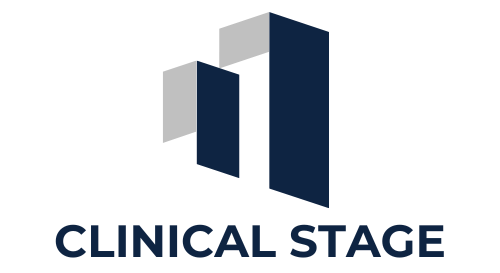Enhancing Clinical Trial Execution with Predictive Precision Medicine
The clinical trial process is a critical phase in the development of new therapies, but it is often plagued by significant challenges. High costs, lengthy timelines, and high failure rates are common issues that hinder the efficient and effective execution of clinical trials. These obstacles not only delay the availability of new treatments but also place a substantial financial burden on pharmaceutical companies and healthcare systems.
Predictive precision medicine offers a transformative solution to these challenges. By leveraging advanced analytics, machine learning, and predictive modeling, this approach aims to enhance the efficiency and success rates of clinical trials. This blog explores how predictive precision medicine can revolutionize clinical trial execution, making the process more targeted, efficient, and effective.
The Promise of Predictive Precision Medicine
Predictive precision medicine is an innovative approach that utilizes advanced technologies to tailor medical treatments to individual patients. This approach combines data from various sources, including genetic information, patient health records, and clinical trial data, to predict how individuals will respond to specific therapies. By understanding these patterns, predictive precision medicine aims to provide more accurate diagnoses, optimize treatment plans, and improve patient outcomes.
Advanced analytics, machine learning (ML), and predictive modeling are at the heart of predictive precision medicine. These technologies enable the analysis of vast amounts of data to identify patterns and correlations that are not discernible through traditional methods. Key roles include:
- Advanced Analytics: Processes large datasets to uncover insights and trends that inform treatment decisions.
- Machine Learning: Uses algorithms to learn from data and improve predictions over time, enhancing the accuracy of treatment recommendations.
- Predictive Modeling: Develops models that predict patient outcomes based on historical data, helping to tailor treatments to individual needs.
Together, these technologies make it possible to move from a one-size-fits-all approach to a more personalized and precise method of healthcare.
Notable Labs is at the forefront of predictive precision medicine with its innovative Predictive Precision Medicine Platform (PPMP). This platform exemplifies how advanced technologies can be harnessed to improve clinical trial execution and patient care. Notable Labs' PPMP integrates a variety of data sources and uses sophisticated analytics to predict patient responses to different treatments.
The PPMP's Capabilities in Leveraging Genomic Information, Drug Response Patterns, and Clinical Outcomes
The PPMP leverages genomic information, drug response patterns, and clinical outcomes to enhance the clinical trial process. Its capabilities include:
- Genomic Information: The platform analyzes genetic data to identify biomarkers that can predict how patients will respond to specific treatments. This allows for the stratification of patients based on their genetic profiles.
- Drug Response Patterns: By studying how different patients respond to various drugs, the PPMP can identify patterns that suggest which treatments are likely to be most effective for specific patient groups.
- Clinical Outcomes: The platform continuously monitors clinical outcomes to refine its predictions and improve the accuracy of treatment recommendations.
By integrating these diverse data sources, the PPMP provides a comprehensive view of patient responses, enabling more precise and effective treatment strategies.
In summary, predictive precision medicine holds significant promise for transforming clinical trial execution. With advanced analytics, machine learning, and predictive modeling at its core, this approach can enhance the precision and efficiency of clinical trials. Notable Labs' Predictive Precision Medicine Platform (PPMP) demonstrates the practical applications of these technologies, offering a glimpse into the future of personalized healthcare.
Transforming Patient Stratification and Treatment Selection
Traditional clinical trials often use broad inclusion criteria to enroll a diverse and large patient population. While this approach aims to generalize the findings to a wide audience, it introduces significant variability. Heterogeneous patient populations can have varied responses to the same treatment due to differences in genetic makeup, underlying health conditions, and other factors. This variability can obscure the true efficacy of a drug and lead to inconclusive or misleading results.
The traditional approach carries significant risks of trial failures. Many trials fail in later stages due to the inability to demonstrate significant efficacy, often because the drug does not work uniformly across a diverse patient population. Additionally, enrolling non-responders raises ethical concerns, as these patients are subjected to potential side effects without any therapeutic benefit. This not only compromises patient safety but also wastes valuable resources.
Predictive Precision Medicine Platforms (PPMP) like the one developed by Notable Labs offer a solution to these limitations through enrichment strategies. By leveraging advanced analytics and machine learning, the PPMP can predict which patients are most likely to respond to a particular treatment. This allows for the selective enrollment of these predicted responders into clinical trials.
Benefits of Targeted and Efficient Patient Recruitment
Enriching clinical trials with predicted responders has several key benefits:
- Higher Response Rates: By focusing on patients who are more likely to benefit from the treatment, clinical trials can achieve higher overall response rates, providing clearer evidence of efficacy.
- Reduced Adverse Events: Selecting patients based on their predicted response can minimize the inclusion of those who are likely to experience adverse effects, enhancing patient safety.
- Improved Statistical Power: Targeted recruitment increases the likelihood of detecting a treatment effect, improving the statistical power of the trial and reducing the risk of false negatives.
Impact on Successful Trial Outcomes and Resource Allocation
Implementing enrichment strategies with the PPMP can lead to more successful trial outcomes and better resource allocation. The key impacts include:
- Reduced Trial Costs: By focusing on patients who are more likely to respond, trials can be smaller and more efficient, reducing overall costs.
- Shortened Timelines: Higher response rates and fewer adverse events can accelerate the trial process, bringing effective treatments to market more quickly.
- Ethical Benefits: Enriching trials with predicted responders ensures that patients are more likely to benefit from participation, addressing ethical concerns related to patient safety and therapeutic benefit.
Predictive precision medicine transforms patient stratification and treatment selection in clinical trials. By focusing on predicted responders, it enhances trial efficiency, improves patient safety, and increases the likelihood of successful outcomes. Notable Labs' PPMP exemplifies how these strategies can be practically applied, paving the way for more effective and ethical clinical trials.
Adaptive Trial Methodologies
In traditional clinical trials, data analysis often occurs in batches after each phase is completed, leading to delays in recognizing important trends and making necessary adjustments. Adaptive trial methodologies, powered by predictive precision medicine, emphasize continuous monitoring and real-time data analysis. This approach allows researchers to monitor patient responses to treatments in real-time, providing immediate insights into the efficacy and safety of the drug under investigation.
Real-time monitoring enables researchers to:
- Identify Early Signs of Efficacy or Adverse Effects: Detecting positive responses or adverse reactions early allows for timely interventions, ensuring patient safety and optimizing treatment protocols.
- Adapt to Variability: As patient responses can vary widely, real-time data analysis helps in understanding these variations and adapting the trial design accordingly.
Continuous monitoring and real-time data analysis facilitate informed decision-making
throughout the trial process. Key decisions include:
- Dosing Adjustments: Based on real-time feedback, researchers can adjust dosages to optimize therapeutic outcomes and minimize side effects. This dynamic approach ensures that patients receive the most effective and safe dosage.
- Patient Stratification: By continuously analyzing patient responses, researchers can stratify patients into subgroups that respond differently to treatments. This allows for more personalized and targeted therapeutic strategies within the trial.
Adaptive trial designs enable seamless transitions between different phases of the study, based on the continuous influx of data. Traditional trials are often rigid, with each phase needing to be completed before the next begins. In contrast, adaptive trials are more flexible and iterative. For example:
- Phase Transition: If early data from Phase I indicates promising safety and efficacy, the trial can transition more quickly into Phase II, saving time and resources.
- Dose Optimization: Adaptive designs allow for dose adjustments based on interim analysis, which can be implemented without pausing the trial.
Adaptive trial designs enhance efficiency and prioritize patient safety by allowing for modifications to the trial protocol based on real-time data. Benefits include:
- Efficient Resource Use: By focusing resources on the most promising treatment arms and discontinuing those that are less effective, adaptive trials optimize the use of time and funding.
- Increased Flexibility: The ability to adapt the trial in response to data ensures that the study remains relevant and responsive to emerging insights, leading to more robust and reliable results.
- Patient-Centric Approach: Adaptive trials prioritize patient safety by making necessary adjustments to treatment protocols based on real-time feedback. This approach ensures that patients are not subjected to ineffective or harmful treatments for extended periods.
In conclusion, adaptive trial methodologies, supported by continuous monitoring and real-time data analysis, represent a significant advancement in clinical trial execution. By enabling seamless transitions between study phases and making informed adjustments based on patient responses, these methodologies enhance trial efficiency and prioritize patient safety. Predictive precision medicine platforms, such as Notable Labs' PPMP, exemplify how adaptive trial designs can be practically implemented to transform the clinical trial landscape, leading to more effective and personalized healthcare solutions.
Improving Patient Recruitment and Retention
One of the significant advantages of predictive precision medicine is its ability to streamline the patient enrollment process in clinical trials. By leveraging advanced analytics and machine learning algorithms, researchers can identify patients who are most likely to respond to a given treatment. This targeted approach ensures that clinical trials enroll the right patients from the start, reducing the time and resources spent on recruitment.
Targeting predicted responders not only streamlines enrollment but also increases the likelihood of patient adherence and retention throughout the trial. When patients receive treatments that are more likely to work for them, they are more motivated to remain in the study. Higher retention rates lead to more consistent data collection and a more reliable assessment of the treatment's efficacy and safety.
The personalized nature of precision medicine significantly enhances the patient experience. Patients are more likely to feel valued and understood when treatments are tailored to their specific genetic profiles and health conditions. This personalized approach fosters a sense of trust and engagement, which is crucial for maintaining patient involvement in clinical trials.
Building trust and engagement is essential for the success of any clinical trial. By providing clear communication, regular updates, and personalized care, researchers can create a positive experience for patients. Engaged patients are more likely to adhere to study protocols, attend follow-up appointments, and provide accurate data, all of which are critical for the success of the trial.
Post-Marketing Surveillance and Real-World Evidence
The benefits of predictive precision medicine extend beyond clinical trials into post-marketing surveillance. Continuous monitoring of patient outcomes after a drug is approved and marketed is crucial for understanding its long-term efficacy and safety. Predictive precision medicine platforms can integrate data from various sources, such as electronic health records, patient registries, and wearable devices, to provide valuable insights into real-world drug performance.
By integrating data from diverse sources, predictive precision medicine can offer a comprehensive view of how treatments perform in real-world settings. This holistic approach allows for the identification of long-term trends, rare adverse events, and subpopulation-specific responses that might not be evident in controlled clinical trial environments.
The continuous feedback loop enabled by predictive precision medicine ensures that treatment approaches are continually optimized and refined. As new data is collected, AI and machine learning models can be updated to improve their predictive accuracy. This ongoing optimization leads to increasingly effective and personalized treatment plans over time.
The dynamic nature of predictive precision medicine ensures that patient care remains up-to-date and tailored to the latest scientific insights. This approach not only enhances patient outcomes but also builds confidence in the healthcare system's ability to provide cutting-edge, personalized treatments.
Collaborative Efforts in Precision Medicine
The advancement of predictive precision medicine relies heavily on robust partnerships among industry leaders, academic institutions, and research organizations. Each of these stakeholders brings unique strengths and perspectives to the table:
- Industry Leaders: Pharmaceutical and biotech companies have the resources and expertise necessary to develop and commercialize new therapies. They play a crucial role in translating scientific discoveries into market-ready products.
- Academic Institutions: Universities and research institutions are at the forefront of scientific innovation. They provide the foundational research and novel methodologies that drive advancements in precision medicine.
- Research Organizations: Non-profit and governmental research organizations facilitate large-scale studies and provide the infrastructure necessary for conducting comprehensive clinical trials. They also often play a role in setting standards and guidelines for clinical research.
Effective collaboration among these stakeholders is essential for the success of precision medicine initiatives. Fostering partnerships and encouraging the sharing of data and best practices can lead to several benefits:
- Enhanced Research Capabilities: Collaborative efforts allow for pooling of resources and expertise, leading to more robust and comprehensive research outcomes.
- Data Sharing: Sharing clinical data across organizations can provide a more extensive dataset for analysis, improving the predictive accuracy of machine learning models and the effectiveness of precision medicine approaches.
- Standardization: By working together, stakeholders can develop standardized protocols and guidelines, ensuring consistency and reliability in precision medicine applications.
To fully realize the potential of precision medicine, it is essential to drive its adoption across the healthcare ecosystem. This requires concerted efforts to educate and train healthcare providers, integrate precision medicine into clinical practice, and demonstrate its value through successful case studies and real-world applications.
- Education and Training: Providing education and training for healthcare professionals on the principles and applications of precision medicine is crucial. This helps ensure that practitioners are well-equipped to implement these advanced approaches in their clinical practice.
- Integration into Clinical Practice: Developing practical tools and platforms that facilitate the integration of precision medicine into everyday clinical workflows can help accelerate its adoption. This includes user-friendly software, decision-support systems, and streamlined processes for data collection and analysis.
The ultimate goal of precision medicine is to accelerate the development of life-saving therapies that are tailored to individual patients. By leveraging predictive models and real-time data analysis, precision medicine can significantly reduce the time and cost associated with traditional drug development processes.
- Faster Development Timelines: Predictive precision medicine can help identify promising drug candidates more quickly, allowing for faster progression through clinical trials and regulatory approval.
- Cost-Effective Research: By targeting the right patient populations and optimizing clinical trial designs, precision medicine can reduce the financial burden of drug development, making it more sustainable and accessible.
Conclusion
Notable Labs' Predictive Precision Medicine Platform (PPMP) stands out as a shining example of how innovation can transform clinical trials. By leveraging advanced analytics, machine learning, and real-time data analysis, the PPMP provides a framework for more efficient and effective drug development. This platform's ability to predict patient responses, streamline enrollment, and optimize trial designs showcases the immense potential of predictive precision medicine.
Predictive precision medicine has the potential to revolutionize the entire drug development process. By focusing on personalized treatments, it addresses the unique needs of individual patients, leading to more successful outcomes. The integration of genomic information, drug response patterns, and clinical outcomes ensures that new therapies are developed with a higher likelihood of efficacy and safety.
The future of drug development lies in embracing innovative trial designs and leveraging cutting-edge technologies. Adaptive trial methodologies, continuous monitoring, and real-time data analysis are just a few examples of how predictive precision medicine can enhance the clinical trial process. These approaches not only improve efficiency but also ensure that patient safety and treatment efficacy are prioritized.
Placing patients at the forefront of clinical trial design and execution is crucial for transforming the trial paradigm. Predictive precision medicine empowers patients by offering personalized treatment options and ensuring that they are active participants in their healthcare journey. This patient-centric approach fosters trust, engagement, and better overall outcomes.
The promise of a new era of precision medicine in healthcare is within reach. Predictive precision medicine offers the tools and methodologies needed to make personalized, effective, and ethical drug development a reality. By integrating these approaches into mainstream healthcare, we can achieve a future where treatments are tailored to individual needs, leading to better health outcomes and a more sustainable healthcare system.
To realize the full potential of predictive precision medicine, it is crucial for stakeholders across the healthcare ecosystem to support and invest in these innovative approaches. By fostering collaboration, sharing data and best practices, and driving the adoption of precision medicine, we can accelerate the development of life-saving therapies and improve patient outcomes.
The vision for the future of drug development is one where treatments are personalized,
effective, and developed with the highest ethical standards. Predictive precision medicine offers a pathway to this future by ensuring that therapies are tailored to individual patient needs and developed through efficient and ethical clinical trial processes. By embracing these advancements, we can transform healthcare and usher in a new era of precision medicine that benefits patients worldwide.
In conclusion, the transformative potential of predictive precision medicine is immense. Through collaborative efforts, innovative trial designs, and a patient-centric approach, we can overcome traditional challenges and revolutionize drug development. Stakeholders are encouraged to invest in and support these advancements, paving the way for a future of personalized, effective, and ethical healthcare.










